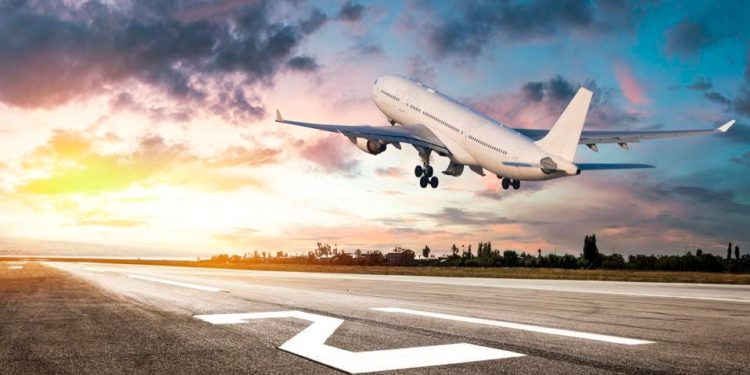One-way ticket to crisis ridden states in Nigeria has risen from N50,000 it was pegged in February 2022 to above N100,000, LEADERSHIP checks has shown.
The increase in fare, it was gathered was due to inability of passengers to travel through other modes of transportation due to the high level of insecurity associated to the states.
Available information showed that Kaduna to Lagos flight on Azman Air for Wednesday, 3rd August, 2022 is N105,000 as at 14:05 on Tuesday while Kaduna to Maiduguri for same day is N105,000 and Abuja to Birnin Kebbi goes for N100,000.
On Max Air, Katsina To Lagos flight goes for N170,000 while Tola to Lagos is N148,000 and Jos to Lagos goes for N134,000 and Portharcourt to Kano goes for N140,000 on Friday, 5th August, 2022. Also, Air Peace airline to crisis ridden Owerri, goes for same day goes for N150,000.
LEADERSHIP recall that states like Anambra and Owerri have been bedeviled by activities of Unknown Gunmen (UGM), who have been attacking and killing people including security operatives. Also, while bandits have made the North West, Central ungovernable, Boko haram has taken over larger parts of the North Eastern states especially Borno and Yobe states respectively.
Also, recent attack on Kaduna-Abuja train has made the ministry of Transportation stop the operation of train from Abuja to Kaduna and the Abuja-Kaduna expressway have been overtaken by bandits terrorising and kidnapping people for ransom.
However, the increase in price and scarcity of aviation fuel, also known as, Jet A1 has made price of ticket soar above the reach of the middle class in the past few weeks as airline operators profit margins shrink due to high operating cost.
As at the time of filing this report, it was gathered that Jet A1, has hit all time high as it currently sells for N822 per litre in Lagos, N859 in Abuja, N852 per litre in Port Harcourt while it sells for N890 and N892 in Yola and Maiduguri respectively.
This increment in price of Jet-A1, according to airline operators, has eaten up their profit, thereby, making profitability very slim for operators.
Also, Investigation, however, showed that the increase in the price of Jet A1 has made fuel constitute 70 per cent of airlines operating cost as against 40 per cent it was before the global energy crisis.
Aviation fuel recorded a price hike of 268 per cent between January 2022 and April 2022, moving from N190 to over N800 in five months and this has made domestic airline carriers in Nigeria threaten to shutdown their operations, citing rising jet fuel costs and the increasing cost of operation.
Speaking on the crisis rocking the aviation sector on a TV programme monitored by LEADERSHIP, the president Aircraft Owners and Pilots Association of Nigeria (AOPAN), Alex Nwuba, said while the airline industry is not immune from the challenges of the global economy, the aviation sector is in a dire strait situation.He said government must put in place short term measures like downward review of taxes and charges like the ticket sale charge (TSC), Passenger Service Charge (PSC), fuel tax, among others to ameliorate the challenges of the airlines.
According to him, while the short term solutions help, they do not in anyway eliminate the problems.
“The problems are much more fundamental and need to be addressed much more fundamentally.”
“Everything helps. The 5 percent helps, PSC reduction helps, removal of over flight charges helps, removal of taxes on aviation fuel helps, government intervention in some matters, availability of foreign exchange helps. So when we put these together, ultimately things become a lot easier,” he added.
“This industry faces a serious problems and that problem is that a few more airlines are likely to go under if nothing is done because you can’t continue to spend and the environment is very challenging.
“Most of the airlines depend on money from ticket sales and bank borrowings… In the short term if nothing is done, before the end of this year we would lose three more airlines.”
Also, a former director general, NIgerian Airspace Management Agency (NAMA), Capt. Roland Iyayi, said while the current fare hike is unsustainable, airlines have no option than to review prices to recover costs.
He, however, stated that the NCAA should, as part of the solution to current challenges facing the airlines, review the five percent ticket sale charge (TSC).
He added, “The immediate solution again is for the government to import and subsidise Jet A1 before we start getting the refineries to work.”



